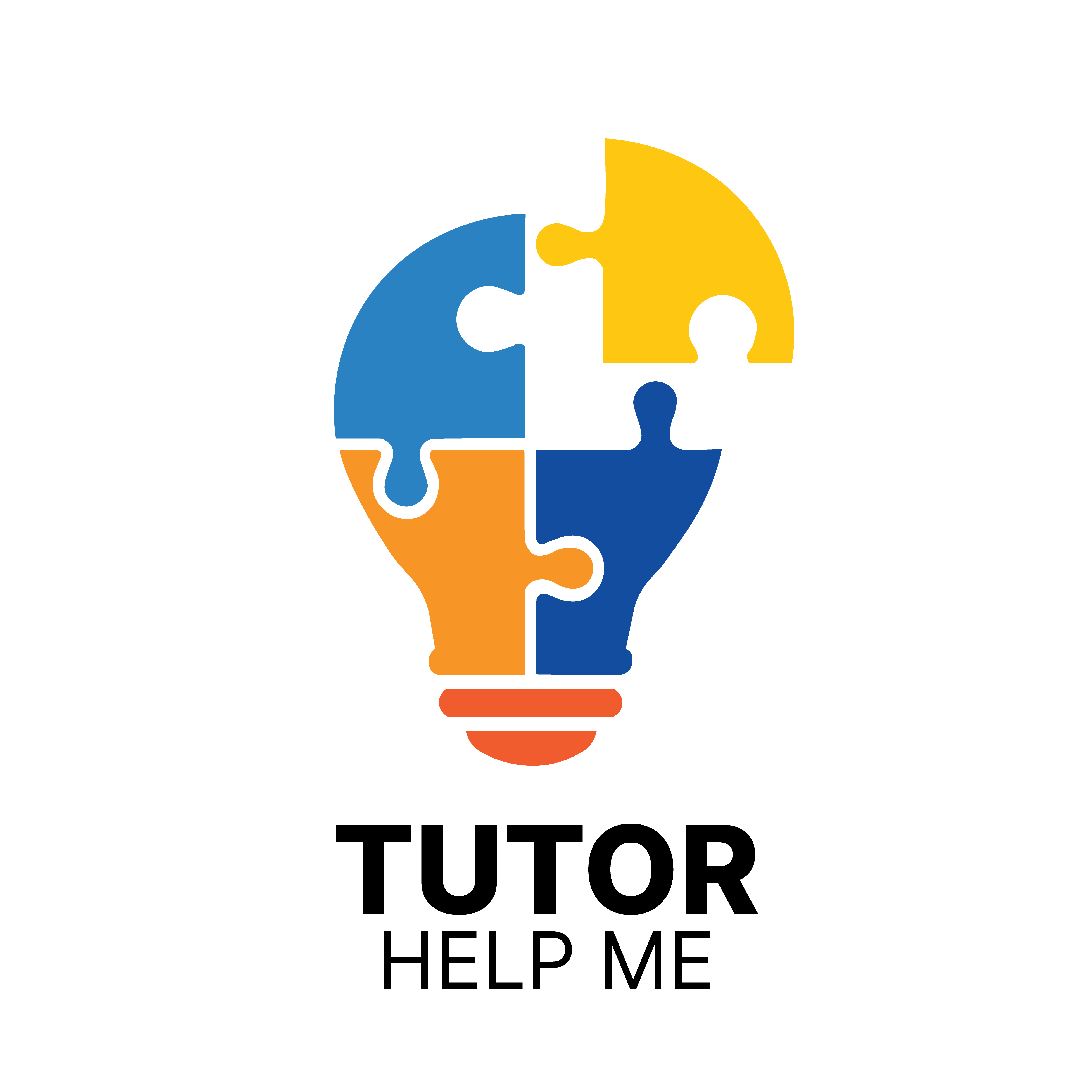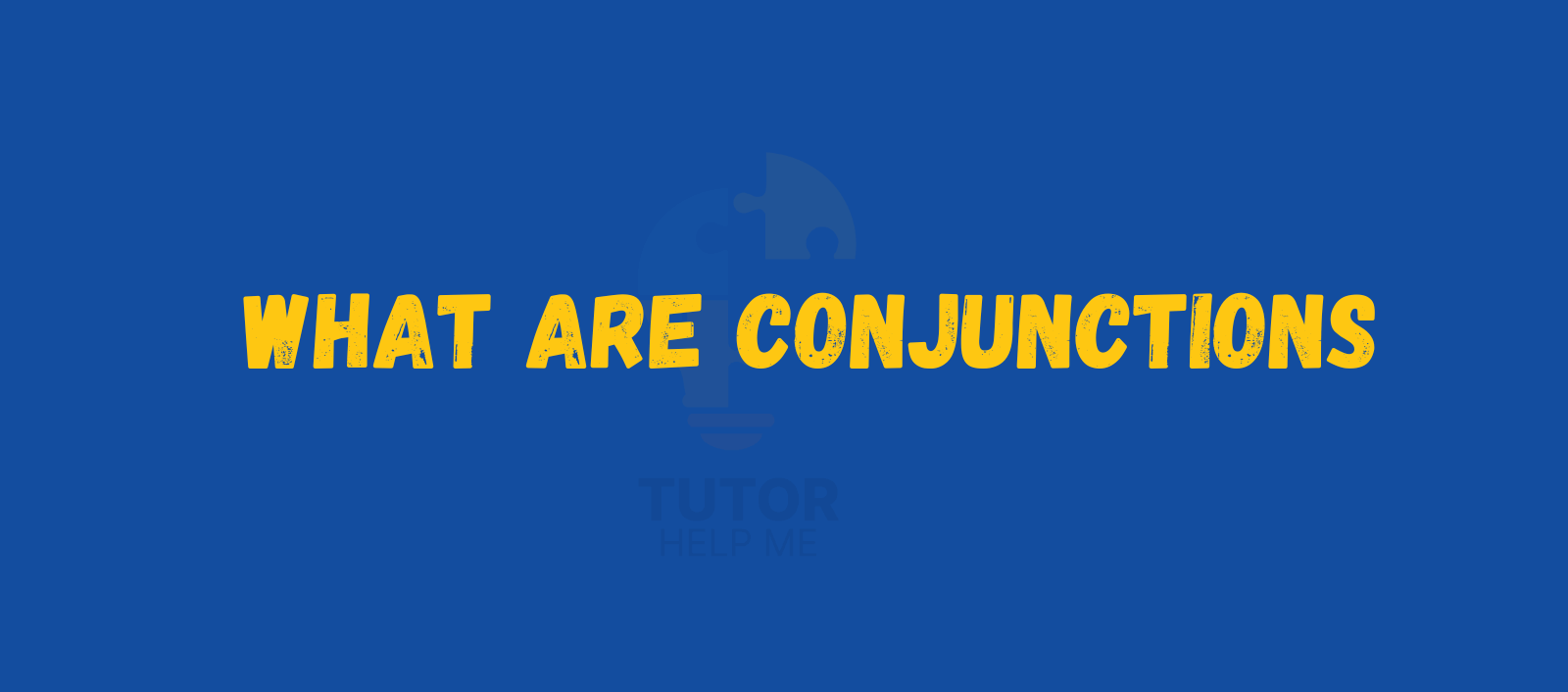Conjunctions are words that join ideas, phrases, or sentences. They help writing flow clearly and make speech easier to understand. We use them every day without even noticing. This blog explains what are conjunctions, their types, and how to use them correctly.
What are Conjunctions?
A conjunction is a word that joins words, phrases, or clauses in a sentence. It helps connect ideas and makes sentences smoother and more meaningful.
Conjunction words:
and, but, or, so, because, although, while, since, if, unless, either…or, neither…nor, not only…but also
Examples:
- I like tea and coffee.
- She studied hard, so she passed.
- You can stay here or go home.
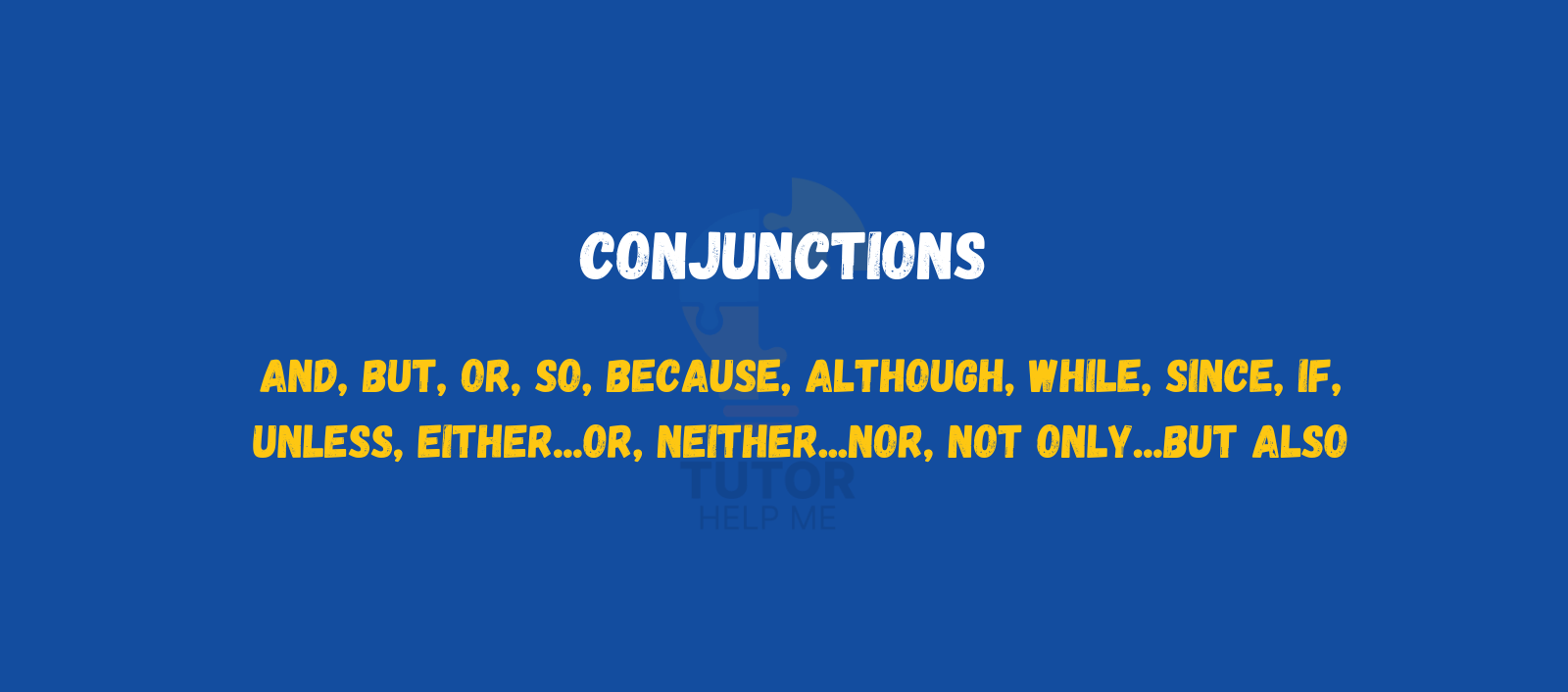
Types of Conjunctions (with examples)
Coordinating Conjunctions
Connect equal parts of a sentence (word + word, phrase + phrase, or clause + clause).
Conjunction words:
for, and, nor, but, or, yet, so (Remember: FANBOYS)
Examples:
- He is smart and kind.
- She wanted to go, but she was busy.
- I will call you, or I’ll email.
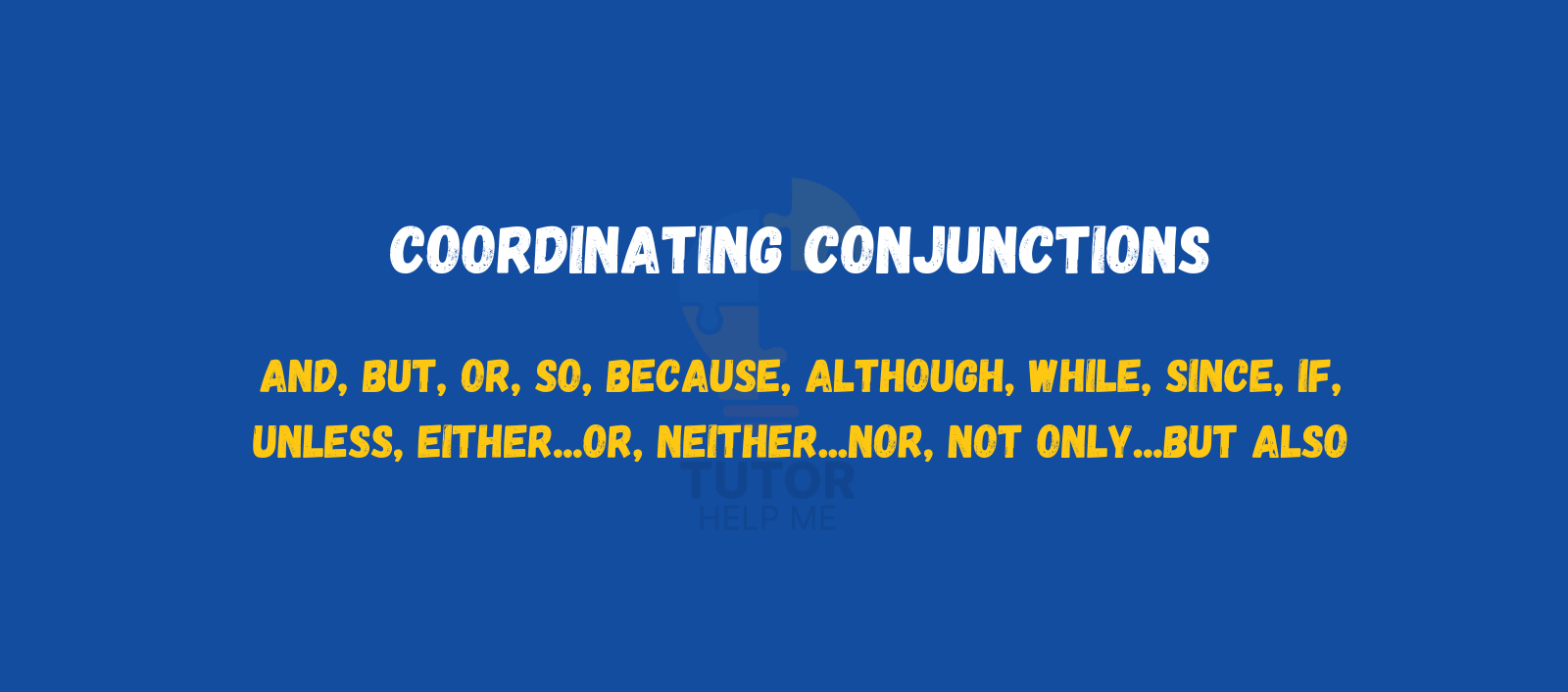
Subordinating Conjunctions
Connect a dependent clause to an independent clause.
Common conjunctions:
because, although, since, if, unless, while, when, after, before, as, even though
Examples:
- I stayed home because it was raining.
- Although he was tired, he went to the gym.
- We’ll eat dinner after Dad comes home.
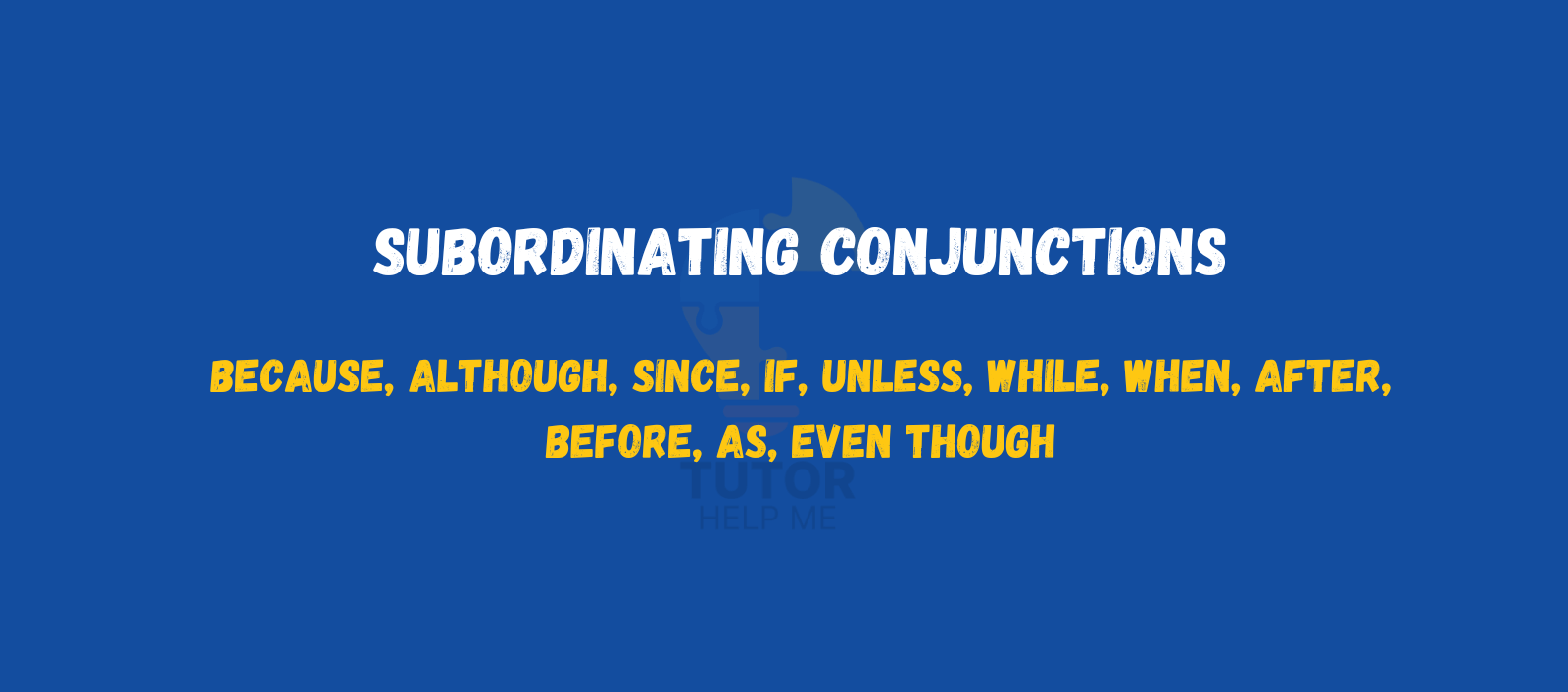
Correlative Conjunctions
Conjunctions used in pairs to join equal parts of a sentence.
Conjunction Pairs:
either…or, neither…nor, both…and, not only…but also, whether…or
Examples:
- Either call me or send a text.
- Not only she sings, but also dances.
- Both the manager and the assistant were present.
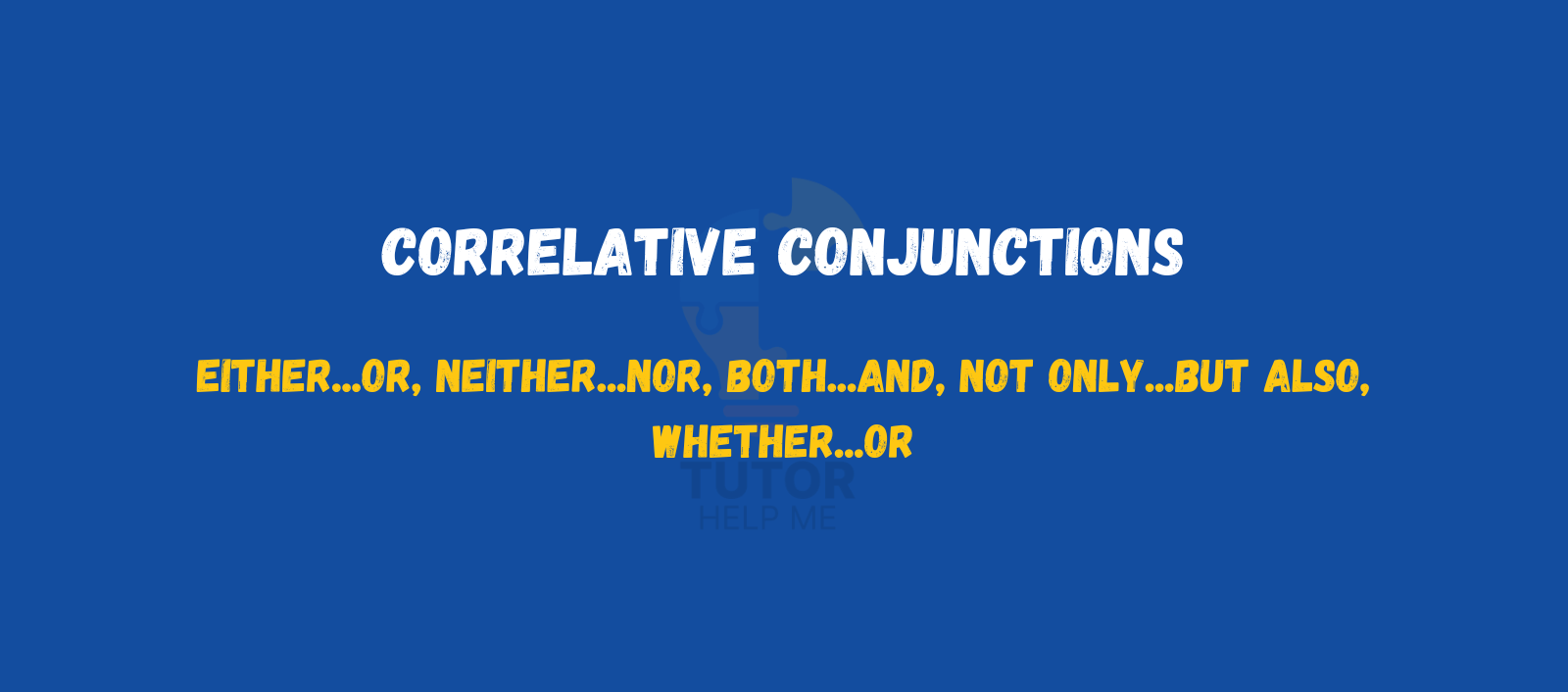
Conjunctive Adverbs (also known as Linking Adverbs)
These connect independent clauses and show relationships like cause, contrast, or time.
Conjunction words:
however, therefore, moreover, nevertheless, meanwhile, hence, otherwise
Examples:
- He was late; however, he still joined the meeting.
- She studied well; therefore, she passed the test.
- The movie was boring; nevertheless, I watched it till the end.
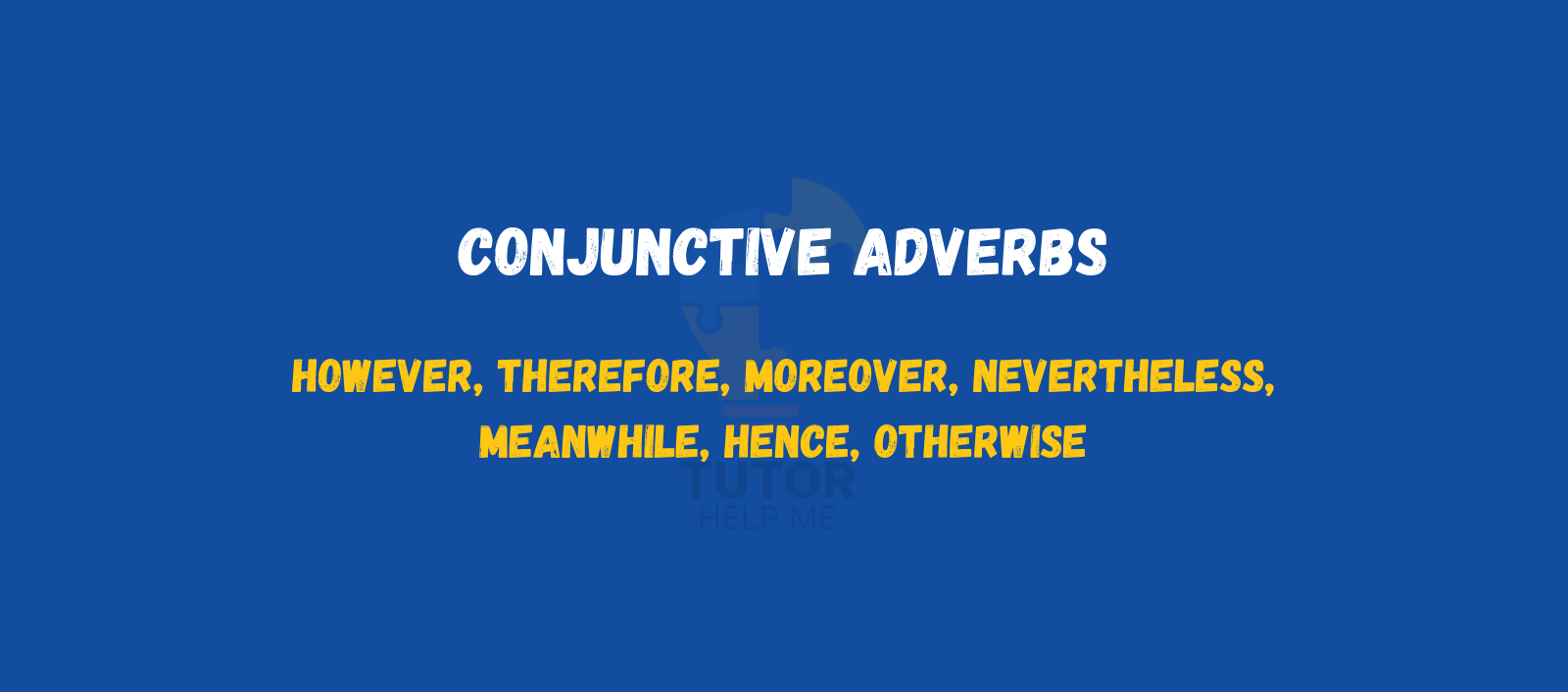
Compound Conjunctions
These are made up of more than one word and function like a conjunction.
Conjunction words:
as long as, so that, even if, as well as, in order that, provided that
Example:
- You can go out as long as you finish your homework.
- I’ll help you so that we finish on time.
- We’ll go on a picnic provided that the weather is good.
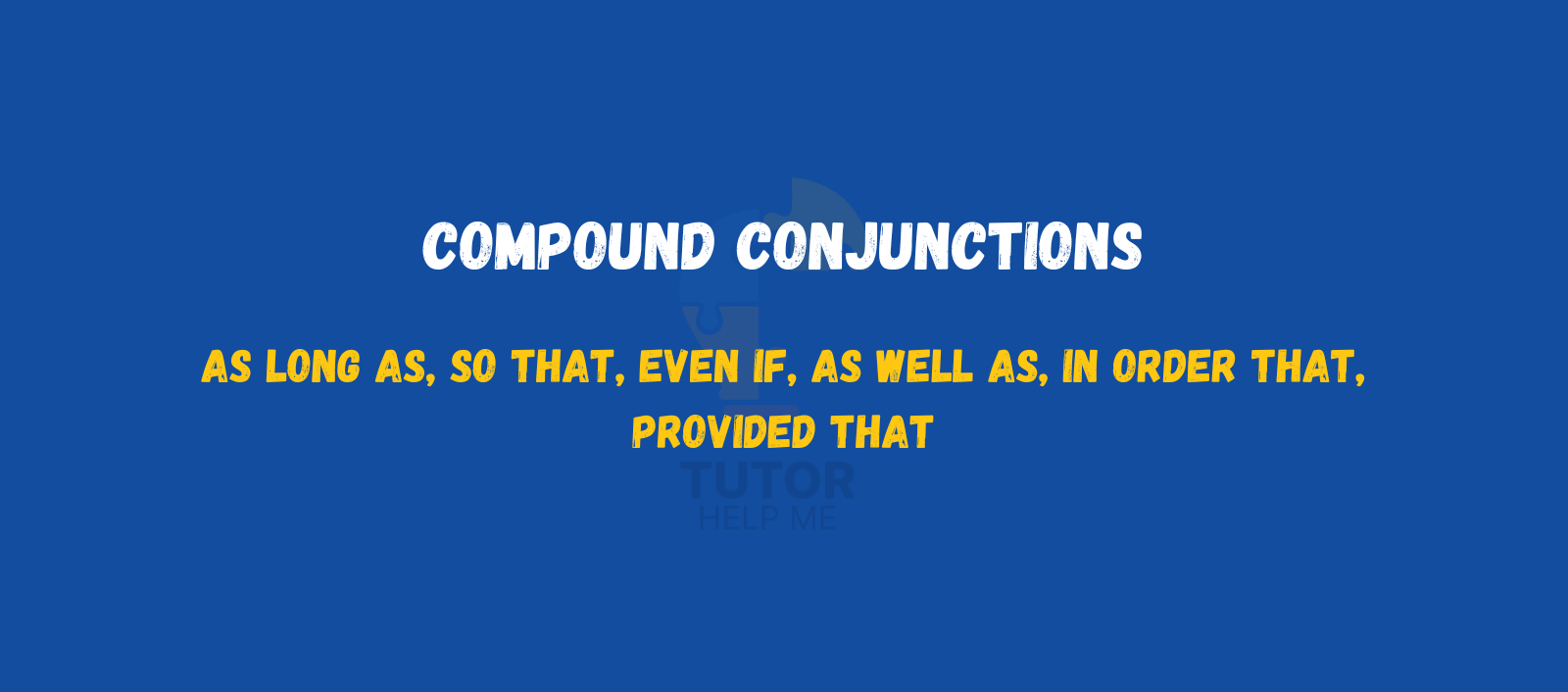
Conclusion
Conjunctions help connect words, phrases, and sentences. They make writing smooth and clear. Each type has a role. Coordinating, subordinating, correlative, conjunctive adverbs, and compound conjunctions all link ideas in useful ways. Learning how to use them improves both writing and speaking.
Read More What are Prepositions? Definition and Types With Examples
FAQ’s
Can conjunctions be used in speech?
Yes, conjunctions are commonly used in both writing and speaking to connect thoughts and keep conversations smooth.
What is a dependent clause?
A dependent clause cannot stand alone. It needs an independent clause and is often joined using a subordinating conjunction.
Why are conjunctions important?
Conjunctions are important because they link ideas clearly, improve sentence flow, and make writing easier to understand and follow.
